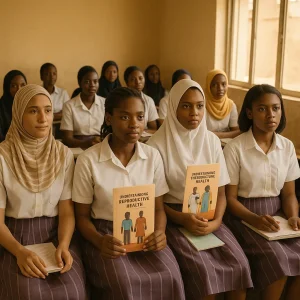
A monthly biological reality shapes the educational futures of millions of Nigerian girls. The Guardian Nigeria reports that Menstrual Hygiene Day illuminates a stark truth: access to sanitary products and reproductive health education directly influences school attendance, teen pregnancy rates, and lifetime opportunities. For countless young women, managing menstruation determines whether they pursue diplomas or face premature motherhood.
This fundamental health need reveals how biological realities intersect with educational equity and gender empowerment.
Key Takeaways
- Menstrual Hygiene Day highlights the critical connection between period management and school retention
- Girls lacking menstrual support frequently miss classes, increasing dropout and early pregnancy risks
- Schools providing reproductive health resources significantly reduce student dropout and early marriage rates
- Advocates push for mandatory menstrual education integration into the national school curriculum
- Improved menstrual care correlates with reduced maternal mortality and enhanced gender equity
- Community leaders urged to address cultural stigma surrounding menstruation and female health
- UNICEF data shows that period poverty affects 500 million women and girls globally
Share your thoughts: What practical steps can schools and communities take to ensure no girl misses education due to menstruation?



